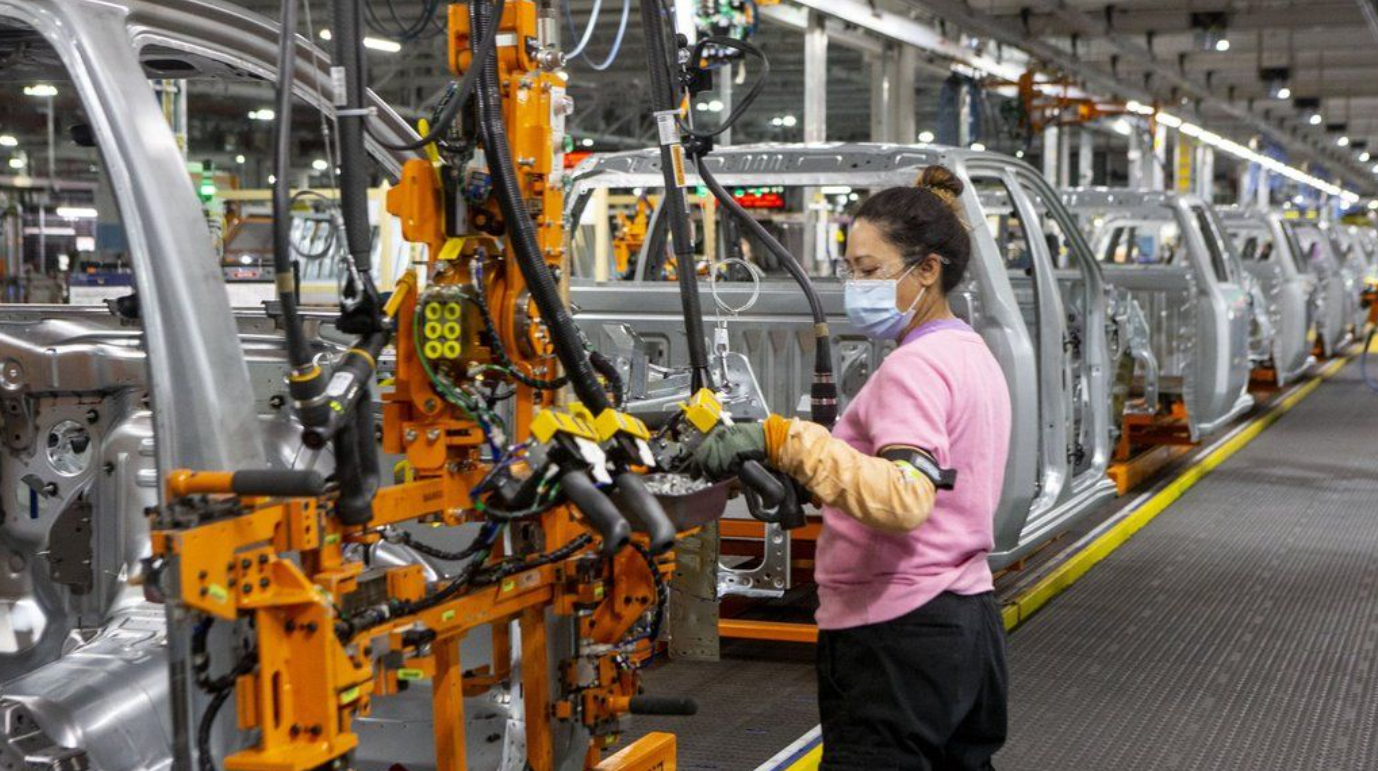
Stellantis suspended production in its Windsor, Ontario assembly plant. Two weeks of closing the Canadian factory, as well as some Mexican factories, are coming, while car manufacturers are looking for US customs customs duties that came into effect on Thursday.
“Stellantis continues to evaluate the effects of US customs duties that have recently announced imported vehicles and will continue to dialogue with the US administration of these policy changes,” spokesman Louann Gosselin said in a statement.
The President of the Local Part 444 in Uniform, James Stewart, said in his statement that the Union had heard that it could occur to the interruption of production due to duty and other factors, but that the situation remained frustrating.
“Your Union follows the situation carefully and will continue to require clarity and responsibility from society,” he added.
High customs duties are disturbed by a highly integrated automotive industry based on free trade in North America.
Car manufacturers still benefit from relief, because customs duties are suspended for some car parts in accordance with the free trade agreement in Canada. However, this is only the time when the United States determines how to free only the value of the US parts of the vehicle.
Ottawa also retained 25 % of the American customs duties focused on the automotive industry by hitting the United States equivalent to a surcharge, although the Canadian government has decided to exclude cars.
Canadian car manufacturers are also trying to drive these disruptions, but some continue their production.
Honda Canada confirmed that her Alliston, Ontario Factory in Ontario, which employs more than 4,000 workers and produces about 400,000 civil and CR-V per year, is still active.
“We cooperate with our manufacturers, spare parts, trade and logistics in North America to understand the impact of the announced US customs duties, and accept the measured and thoughtful approach to actively manage immediate and future effects,” spokesman Ken Chiu said.
Toyota Canada, which produces around 350,000 RAV4 and 110,000 Lexus multisegments in its Cambridge and Woodstock in Ontario factories, also confirmed that production was not allocated.
“Although the situation is still very unstable, we do not intend to intend to modify our production in the near future. Our vehicles are highly demanded and we will continue to produce them in accordance with the plan,” Philippe Crow spokesman said in a press release.
“At the same time, we will continue to cooperate with federal and provincial governments to find a lasting solution,” he added.
See also: prices in the automotive industry: Quebec famil
Other car manufacturers, including Ford and GM, did not answer immediately.
Customs duties will lead to the closure of many other car factories, mentioned on the social media Flavio Volpe, President of the Association of Car, shortly after Donald Trump confirmed the application of customs duties for motor vehicles.
According to Mr. Volpe, the fact that Canada avoids mutual overall duties while exposed to duties on motor vehicles and metals, has returned to “avoid the ball in the car trajectory”.
United National President Lana Payne said in a statement that Donald Trump was obviously trying to attack the Canadian industry one by one.
“In fact, this trade war is just the beginning, and Canada is still suffering from the consequences of US commercial sanctions, much harder than any other country in the world. That’s why Canada needs a stronger response to these habits while working to build a more resistant Canadian economy.”
Writing Note: The initial version of this article The previous version indicated that Canadian vehicles benefited from tariffs, while in fact these exceptions only concern some spare parts. See the editorial standards of Noovo.

